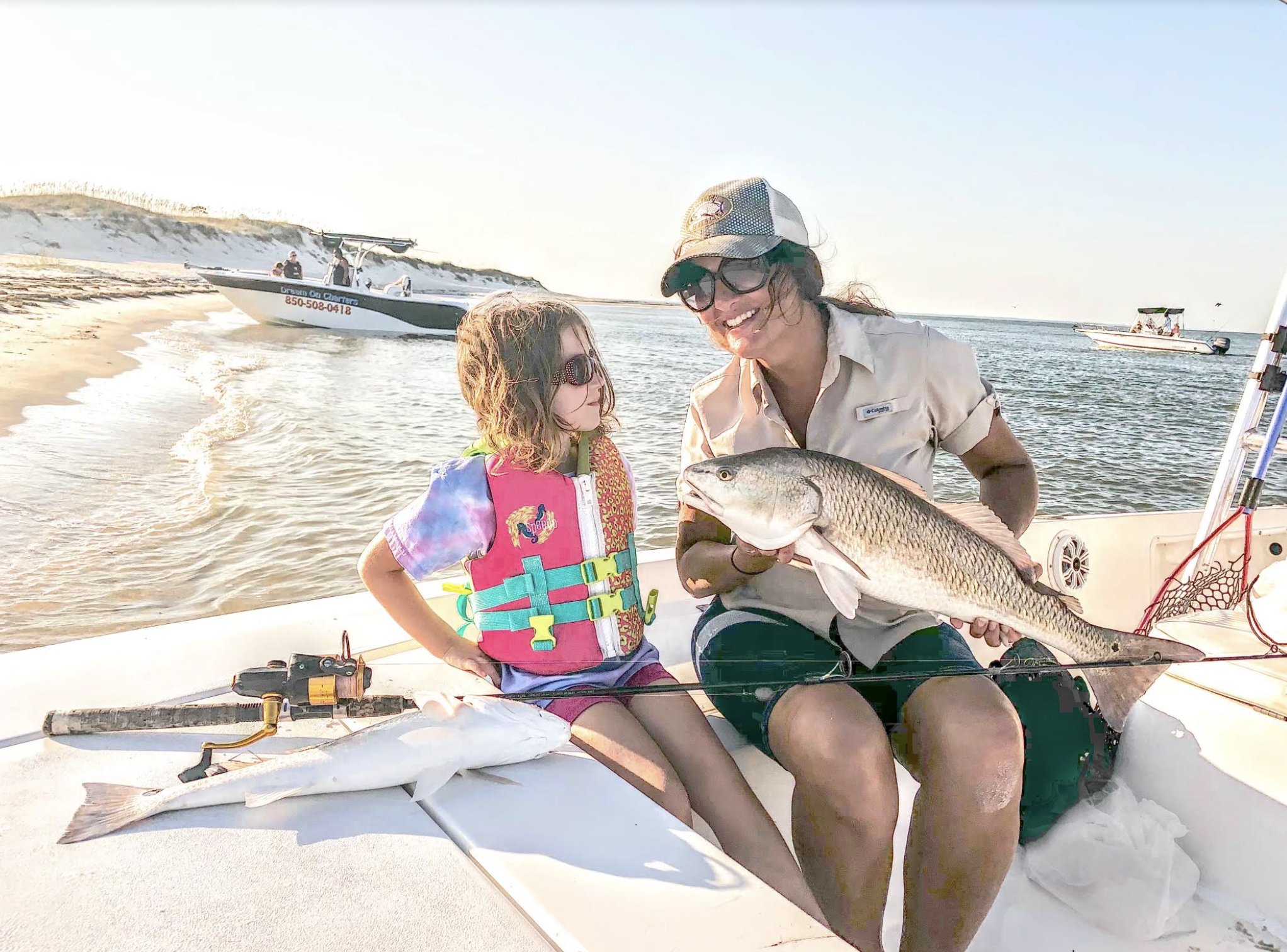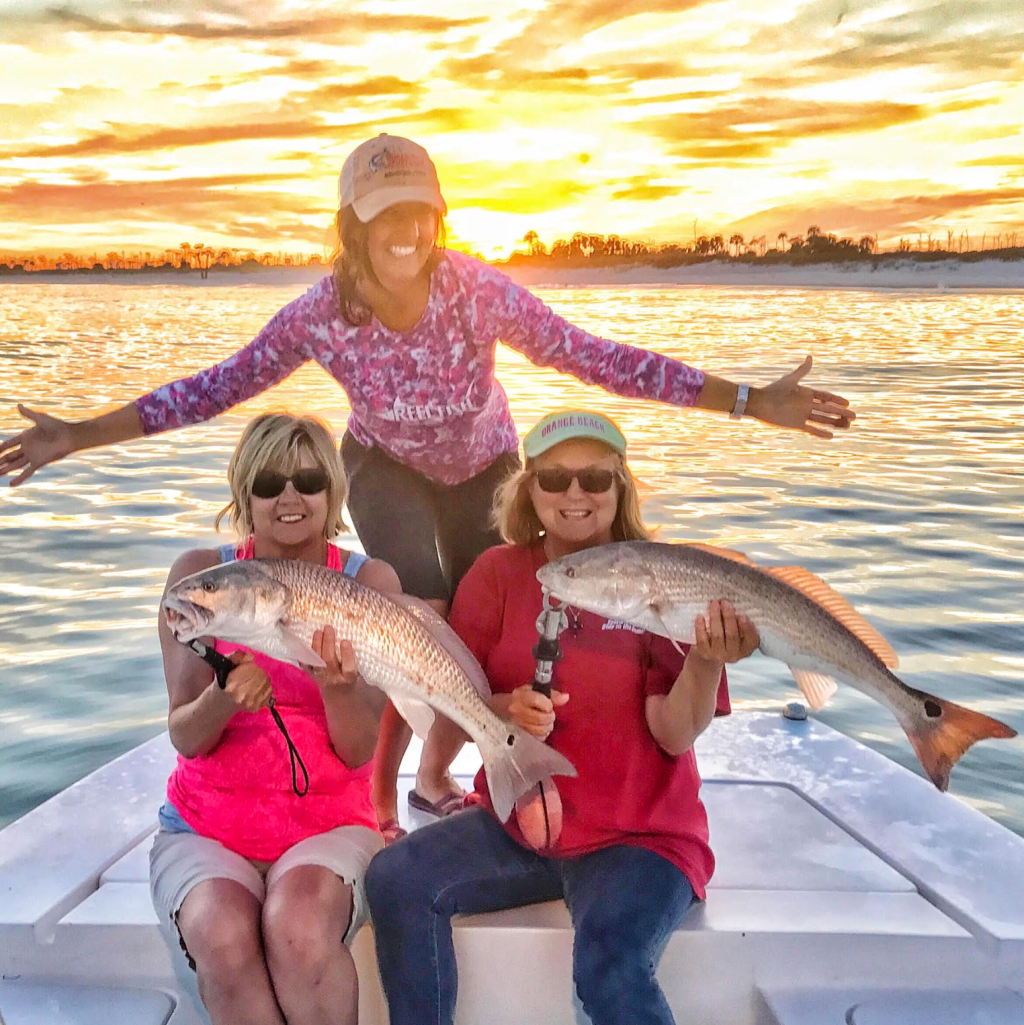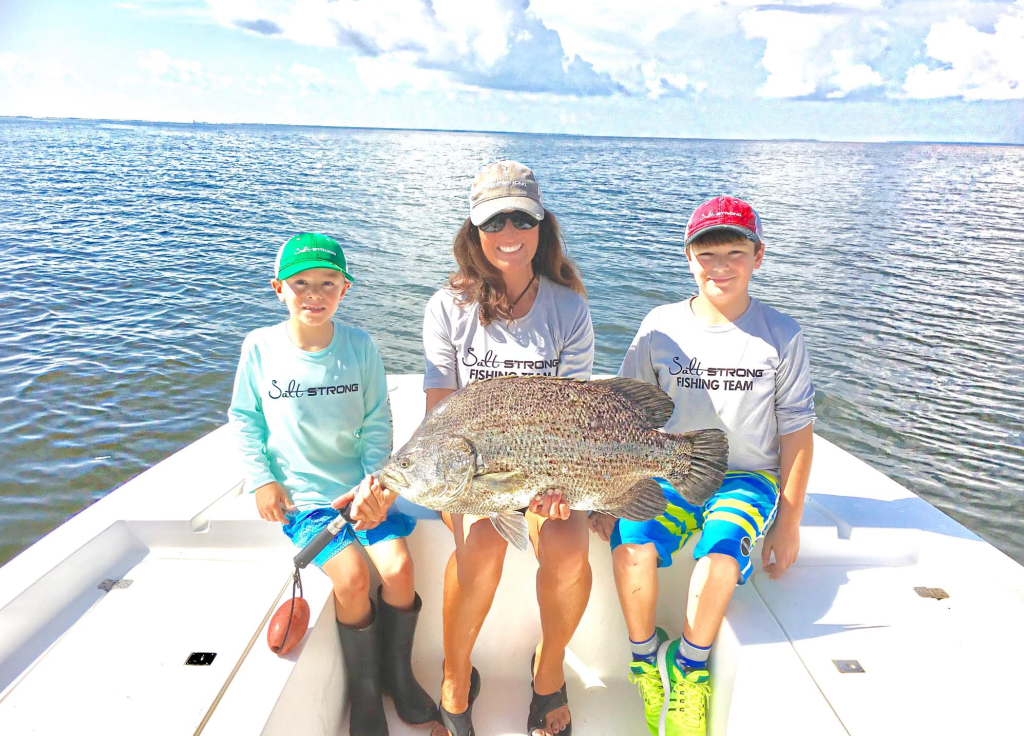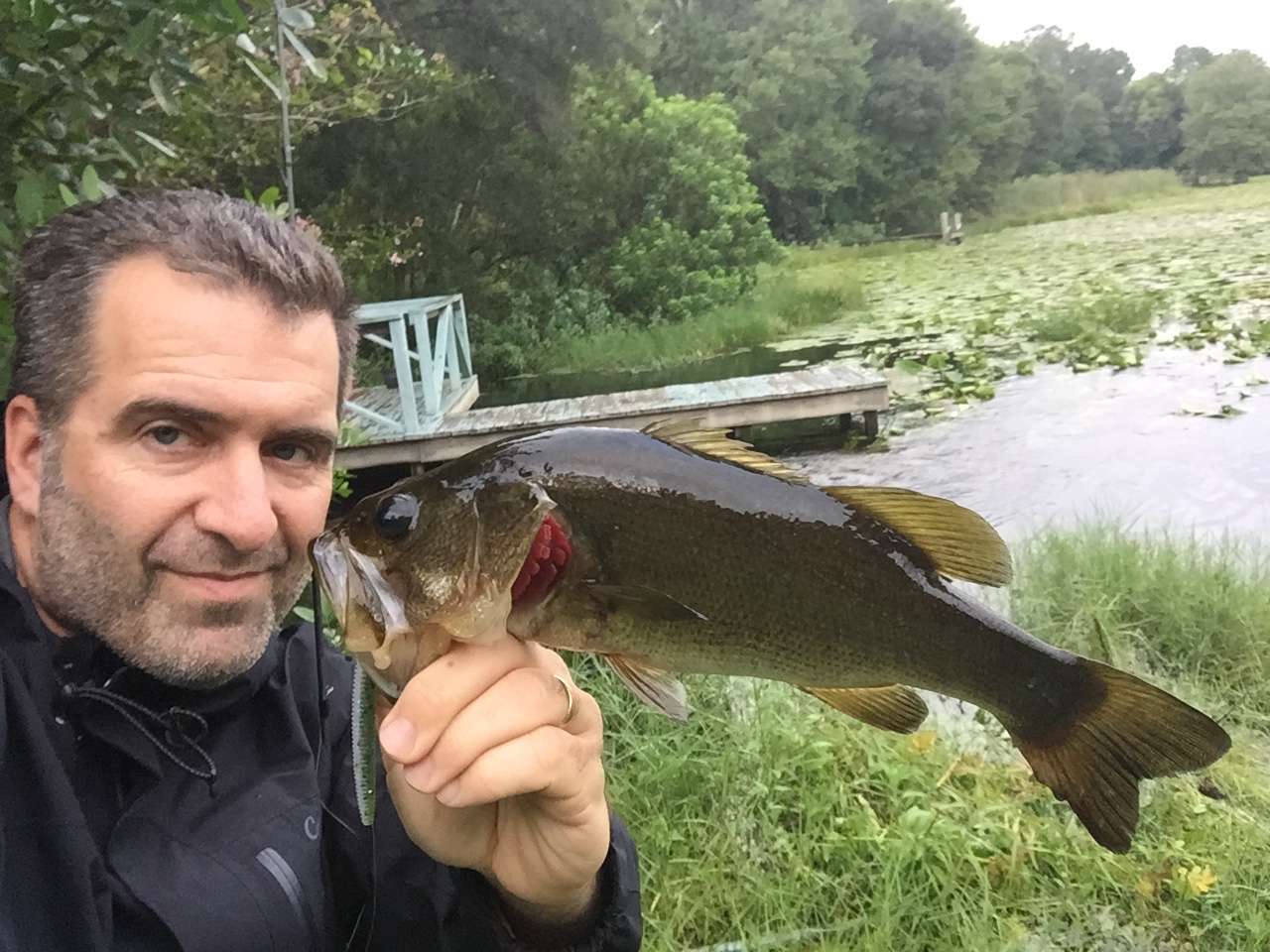
Nothing inspires authentic connection like empathy. To feel how it feels to feel that way fosters a compassionate drive to help others more comfortably navigate a course with which you’ve personally struggled.
That’s what motivates Capt. Krista Miller, a Florida Panhandle fishing guide who welcomes everyone, but really enjoys teaching those who’ve yet to find their footing in the sport. Why? Because that was once her.
A lifetime angler who grew up in the Apalachicola area, Miller’s youth saw plenty of dock fishing with bobbers and cane poles. The saltwater scene, however, was mostly unfamiliar.
“I love taking women and kids fishing,” said Miller, who operates Island Charters out of St. George Island. “When I got into saltwater fishing, I started out very green. That’s an advantage for me because I remember what it was like when I didn’t know what I was supposed to be doing or how I was supposed to be doing it.
“I think that memory has made me a better teacher. Thankfully, I had my brother Bryan to teach me what I needed to learn, but that (initial) lack of knowledge makes me feel what my (beginner) clients feel. It gives me perspective.”
Today, Miller calls redfish her favorite saltwater species. In fact, she’s the only female angler to compete in a Yamaha Bassmaster Redfish Cup Championship presented by Skeeter Boats (Miller teamed with Bassmaster Elite Scott Canterbury in this year’s event at Winyah Bay.). Additionally, her hit list includes speckled trout, white trout, black drum, sheepshead, flounder, pompano, whiting, Spanish Mackerel, sharks and jack crevalle.
Some are easier to catch than others, but with Miller’s teaching style, none are out of reach. Here’s how she helps anglers achieve rod-bending competency.
Real reel talk
Personalities vary, but generally speaking men (including this writer) tend to board charter vessels with a whole lot of confidence in their knowledge of and experience in the angling arts. (If that steps on anyone’s toes — ice and ibuprofen. You’ll survive.)
In Miller’s experience, women and children with little or no exposure to fishing typically approach this numerically male-dominated sport differently. They’re more teachable. (Again, I’m zinging myself here, too, so save the hate mail.)
“They don’t think they know everything and they’re better listeners,” Miller said of her female and child beginners. “They listen to every step and do it methodically.
“A lot of people start the day by saying, ‘I’m sorry, I don’t know how to fish.’ I say, ‘You’re the perfect client because you have no bad habits.’ With these customers, I know I can start from the ground up.”

Learn by doing
Baiting hooks, holding fish — not everyone embraces that stuff equally, but Miller firmly believes that learning begins with fundamental familiarization. Assuming everyone understands even basic fishing tackle terminology dooms the lesson.
“The most common thing (new anglers) don’t know is how to use the equipment; they’re not sure how to hold the rod,” Miller said. “I’ll say ‘flip the bail’ and they look at me like I have three heads. So I’m starting from the ground up.”
Miller does this by actually pointing out the different parts of her medium top medium-heavy spinning tackle and offering a simple explanation of their functions. She also demonstrates key points such as keeping two fingers in front of the reel arm and two behind (to prevent dropping), effective posture, holding the rod butt against your forearm (to minimize fatigue), and positioning the reel spool close to the rod, so the line is easy to reach.
“The one goal I have for everyone on my boat is to make sure they all know how to cast,” Miller said. “This increases independence in women and kids.
“A lot of times, dad will cast for them all day, but a lot of these kids and women are able to learn to do it themselves. That’s a survival skill that they’ll have.”
Reaching this point typically requires repetition, but Miller has come up with a creative strategy to hasten the process. Most folks can memorize song lyrics and catchy advertising jingles, so why not fishing instruction?
To this point, Miller teaches this instructional rhyme:
Hold the line
Flip the bail
Get ready to swing
Let her sail
“Since I came up with that little jingle, by the first couple of times, the kids knew it,” Miller said. “I’d look over and I could hear them saying that rhyme to themselves. That’s confirmation to me that it works.
“With independence comes confidence. I don’t want dad casting for (kids and wives) all day and I’m not going to cast for them all day.”
Describing the satisfaction of seeing her lessons in action, Miller said: “Sometimes, I’ll see those kids again and they’ll say ‘I taught that rhyme to my friends and now they know how to cast!’”
Making the connection
Sadly, Miller occasionally encounters parents that underestimate their child’s ability to learn fishing techniques. Overcoming low expectations often starts with relating the sport to something the child already knows. Connecting casting motion to throwing a football, shooting a basketball, or swinging a baseball bat provides that all-important starting point.
Removing the intimidation of new skills paves the path to proficiency. Along the way, Miller stresses the necessary safety elements of personal flotation devices, boat spacing, and awareness of sharp objects.
“Swinging a baseball bat is one thing, but when you have a hook on the end, it’s a different thing,” Miller said. “People won’t remember (the fun of) a holiday trip or vacation if someone gets a hook in the eye or the arm.”
Miller’s also keen to set realistic expectations. She always asks her customers what they’d like to catch, but wisely steers them toward appropriate targets.
Stalking spooky redfish on shallow flats or making pinpoint casts to tripletail on coastal crab trap buoys are skills worth pursuing; however, beginners learn best with steady action.
“The key is to take beginners where they can definitely catch fish,” Miller said. “Once they see that they can do it all — from casting to reeling in the fish — by themselves, their confidence soars.
“We have spots where you can drop straight down and catch fish, so that’s great for anglers with disabilities. That might be jigging on the bottom for white trout, or catching croakers for speckled trout bait.”
The latter offers one of Miller’s most dependable smile makers.
“When we catch baitfish, I tell the kids, ‘I’m going to show you a magic trick. I’m gong to change this into a bigger fish.’”
With her engaging style of angling instruction now well-known, Miller said she’s had husbands and fathers tell her they booked trips because their wives and kids would be more relaxed around a female guide. No one’s implying male guides are uniformly impatient; but the tendency toward a more performance-driven approach that’s fully appropriate for seasoned anglers can be counterproductive with beginners.
“After my first couple of years of guiding I started to see a lot of the fathers (who fished with me) bringing their sons and daughters,” Miller said. “I feel proud that I’ve converted a lot of kids and wives into anglers just by being patient with them.”
Side benefit: Miller finds a lot of dads enjoy being able to just fish, instead of casting and dehooking for wives and children. When Miller’s patient, encouraging instruction hits the mark, everyone wins.

Remember the reason
With the Apalachicola River, Apalachicola Bay and the Gulf of Mexico within relatively close proximity, Miller often fishes all three in a single day, with her anglers catching as many as a dozen different species. It’s great when a trip yields incredible numbers with amazing diversity, but that’s not Miller’s most important measurement.
“A lot of captains tend to forget these people are usually on vacation,” Miller said. “It’s easy to get so caught up in catching fish that we don’t remember to have fun.
“You can fill the cooler to the top but if they don’t have fun, you haven’t succeeded.”
From dancing and singing with her customers, to making carefree trip videos, Miller said she wants customers of any age or experience level to walk off her boat with pleasant memories. Catching fish is the core goal, but she never loses sight of why she does this.
“Our job is to entertain and educate. When you can do that, it’s a successful trip.”
For fishing charters, contact Capt. Krista Miller at https://www.stgeorgeislandcharters.com





